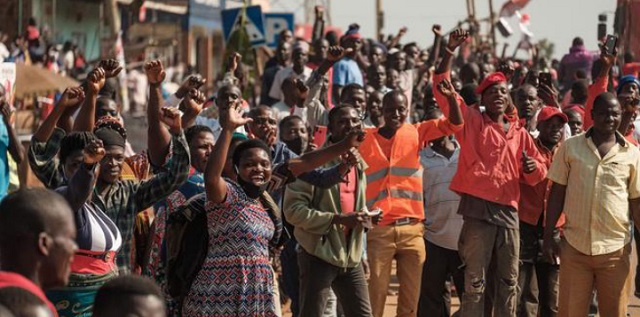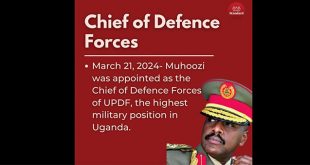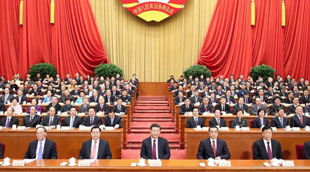
Watershed moment for Kampala
Under legislative manoeuvres and capital city reforms, they point at how, in June 2009, building on the foundations set in place by the 2005 Constitutional amendment, the central government tabled the Kampala Capital City Bill, which was passed into law in 2010,amid huge controversy.
“This was a watershed moment for Kampala and an opportunity for central government to introduce significant reforms,” they say, “However, in practice, the reforms did not give the city administration autonomy over its resources or improve coordination among local authorities within and around the capital.”
The researchers say that Museveni claimed victory in Uganda’s recent elections, which potentially extends his presidential rule to 41 years, was marred by widespread claims of rigging, malpractice and intimidation.
At the receiving end of this was his thoroughly brutalised opponent, the pop star-turned politician Robert Kyagulanyi.
It’s difficult for anyone to know exactly how much support Wine and his National Unity Platform command across the country. But what’s clear is that Museveni has been rejected in the capital. Wine’s party won nine of the 10 parliamentary seats in Kampala, with the 10th being retained by its incumbent, an independent MP. Museveni’s party also won just 8% of the mayoral votes cast in Kampala.
Of the many challenges facing the president, the mobilisation of young people living in urban areas is one that clearly will not dissipate. Uganda has one of the youngest populations in the world, with a median age of 17. Moreover, between 2015 and 2020 its urban growth rate was higher than any other country globally. Given that disaffected urban youth are so central to National Unity Platform’s support base, urban opposition is likely to fester and grow after this disputed election.
On the one hand, Uganda finds itself in uncharted territory. The beaten opposition candidate is from the growing demographic of dissatisfied urbanites, and his party has swept the board in Kampala and surrounding districts like no other opposition party before.
On the other hand, there is a sense of déjà vu. Museveni’s party didn’t win any seats in Kampala in 2016 either.
So what did Museveni do to try to regain political dominance in urban areas after previous elections? And what does this mean for the future?
The research explores this with a focus on the NRM attempt to dominate Kampala over the last two decades, and especially since 2010.
It shows the breadth of strategies and tactics used against urban opposition. Wads of cash, institutional restructuring, waiving taxes and regulations, militarisation and open terror on the streets were among them. But they’ve all failed to stop Kampala’s residents from voting against him.
Specifically regarding the youth, the researchers point out how the purview of the official Youth Livelihood Fund, overseen by the Ministry of Gender, Labour and Social Development (MGLSD), has been undermined by State House for anticipated political gain. Many of the groups that have received the cash handouts in Kampala are not in the MGLSD database for the existing and registered youth groups. They note a plan to actually move the Youth Fund from the MGLSD so that it is officially under State House.
“This has resulted in a Shs.130 billion State House Youth Livelihood Fund, reducing the MGLSD funding from Shs66.6 billion in the 2018/19 financial year to Shs.4.62 billion in the 2019/20 financial year,” say citing a report in Daily Monitor.
The researchers say Uganda is at a crossroads.
“It is clear that Museveni is running out of tactics, and business as usual is no longer going to be enough. Either the country’s young, urbanising population needs to be taken much more seriously by the regime, or Museveni takes the country down the road of all-out military dictatorship,” they say.
Two decades of shifting strategies
Most media attention has understandably been focused on the brutal repression of opposition. Nevertheless, the researchers say they see that Museveni’s long campaign to claw back support in Kampala was multifaceted. It included efforts to manipulate institutions and co-opt urban youth, as well as to coerce.
Since the early 2000s, Museveni has made efforts to win over Kampala’s huge numbers of informal workers. He built support among the city’s market vendors, carpenters, salon operators, restaurant owners and transport workers by constantly intervening to prevent the city council from implementing taxes and regulations. He also showered workers’ associations with micro finance schemes and other sporadic favours. This may have even yielded some results with an uptick in support in 2011’s election.
But it became apparent between 2011 and 2016 that his push to transform the city through the new Kampala Capital City Authority also made him unpopular with informal workers. Many found themselves at the sharp end of “clean up” operations on the city’s streets.
In the run-up to the 2016 election – by which time Bobi Wine’s politically-charged music was already rattling the president – Museveni even co-opted a dozen of Uganda’s other leading pop stars into his own campaign song.
This failed to prevent his very low vote share in Kampala in 2016. He then went into overdrive to buy influence among urban youth and opposition figures. He established an informal “ghetto fund” and “brown envelopes”, allegedly diverting money from official government projects, and sent “socialites” and “philanthropists” into city slums to distribute cash and consumer goods.
Wine’s home neighbourhood of Kamwokya was a particular target for Museveni. His State House acolytes wrote gigantic cheques to youth organisations – handouts that took place largely outside official channels.
In this respect, Museveni’s attempt to gain support in urban areas in the 2021 elections was not only about repression. But it still failed.
 The Independent Uganda: You get the Truth we Pay the Price
The Independent Uganda: You get the Truth we Pay the Price



I think it is not true that it is only the Urban youths that Mr. Museveni Tibuhaburwa has failed to win over to his NRM. This is because if not all, the urban youths hail from rural setting, and therefore have village peers who look up to them for social, economic, political information and/or development in the country.
The urban youth who erk a living in the urban setting throughout the country always send part of their earning to support their village/rural folks; therefore have strong Social, economic and political opinion influence on the rural folks.
In other words, Mr. Museveni’s longevity in office/power is not because of his ideological popularity and/or democratic credential with the rural folks, but his vicious war mongering, corrupt, dictatorial and tyrannical practices.
E.g., after the bloody 18th and 19th November massacre (54 dead and hundreds injured and imprisoned incommunicado); with straight faces Gen Tibuhaburwa and religious leader assembled in State House for a Thanks Giving Prayer!